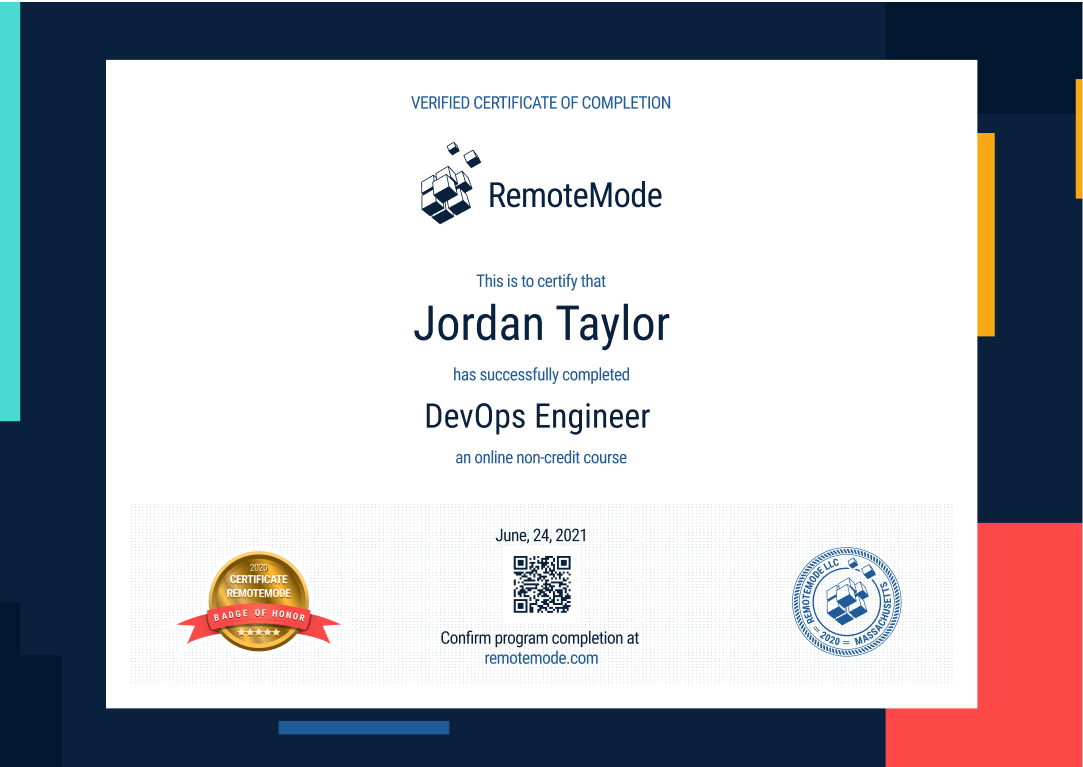Become a Linux Network Engineer
Set up and manage networks that are created using the Linux OS. Use high-end tools paired with cutting-edge teaching to get you up to date and working in the field as soon as possible. While Linux makes up a smaller market share, it is praised and used for its reliability by some of the biggest companies including Twitter, IBM, Google, and Amazon.
- 6-month long course
- 271 lessons
- 6 hours per week
- 156 hours of instruction



Mission Forecast for Linux Network Engineers
Landing Zone
Linux is a cheap, effective, and reliable service for servers and networks and is used by some of the biggest, most prestigious tech companies in the world. Linux gives developers an abundance of freedom to create and maintain their servers and has been used to found some of the most acclaimed start-ups in the world. Network administrators are ranked 8th in best technology jobs.
Mission Objective (Who’s Hiring Right Now)

Linux Network Engineer Overview
Network engineering jobs are some of the most stable and satisfying jobs in the market. Job growth is expected to be up to 5% in the next ten years.
- + 6-month long course
- + 6 hours per week, go at your own pace
- + 271 on-demand lessons
- + 156 hours of learning materials
- + Receive a certificate confirming your training
- + Participate in real-life Virtual Lab projects
- Build, configure and manage Linux operating systems.
- Work directly with software engineers.
- Implement the most effective tools into Linux.
- Resolve security issues and maintain a secure network.
- Work with developers to create and deploy products.
- Manage and upgrade Linux as needed.
Prepare for Liftoff
Linux Hardening and Security
Linux has a massive share and influence on the internet, with the digital space still using the operating system three decades after it was established. Since its inception, it underwent multiple upgrades that then allowed people to enjoy smartphones, smart-powered automobiles, and social media that we have today. With its tight market visibility and lasting relevance to the web, Linux has secured its name as one of the reputable systems next to Windows and macOS.
About the Course
Apart from the advantages that Linux generously provides for a person, it also holds a higher degree of importance to the corporate field. The operating system's role in elevating the web presence of companies cannot be denied, and this claim was made more solid as it now powers nine of the top 10 most reliable companies across the world.
If we are to contextualize this in data security, vulnerability concerns will top as the primary issue. The corporate threats that this introduced call for a dire need to implement necessary security measures. And with that, the nature of these threats and the proper intervention that may be implemented must be put under study.
This course was largely developed to discuss Linux, focusing on hardening and security. While doing so, course takers will be brought into understanding how persisting vulnerabilities must be resolved with the help of substantial toolkits and time-tested best practices.
Who is this Course for?
This three-part tutorial may be taken by anyone who wants to learn about Linux hardening and security. System administrators in search of tighter system encryption and/or Linux system engineers and administrators in need of additional security knowledge may also sign up for this course.
Course Prerequisites and Skills to be developed
While this course is open to anyone who wants to learn about Linux, those who do not have prior knowledge about the system are not encouraged to enroll. With its intermediate to advanced technicalities, this course may only be taken by those that have sufficient experience in the operating system.
Course takers are expected to demonstrate:
- Hack-resistant security measures
- Powerful password formulation
- SSH Hardening practices
- Network security tactics
- Port scanning and network service detection
- Proper understanding of firewalls and configuration
- Account connection
- Other encryption and file-related security
Linux Hardening and Security Overview
General and Physical
The introductory part provides an expository discussion of Linux, highlighting the operating system's fundamentals. It presents an encompassing overview of security in physical and digital contexts. It will then take course takers to a more complex lesson about setups and password demonstrations, which stand as crucial factors for overall system security.
Network, and Account
The subsequent part analyzes Linux’s account types and other relevant concepts such as SSH, Firewalls, and TCP Wrappers. The aforementioned topics were discussed thoroughly, rendering an authoritative lecture for end-users and system administrators.
File System
The last part covers File Systems, in which the focus would be about permissions, special modes, ACLs, and Rootkits. Other related concepts are presented, such as file directory, attributes, and additional resources, which are crucial to the overall security of Linux.

Mission Control
- Stay focused with a mentor’s help and support
- Build a real portfolio with Virtual Lab Projects
- Compete with classmates in a virtual classroom
- Measure your progress with the Activity Tracking Log
- Make sure you get the job with resume help and interview assistance
In Collaboration with
Chart Your Trajectory (271 videos 75 hours)
Certificate of Completion
- Receive a certificate recognized by prevalent companies confirming your training
- Complete real projects in Virtual Labs
- Go at your own pace, learn your way
- Access course videos and materials 24 hours a day
- Take practical quizzes to keep you up to speed
- Classes created and mentored by industry leaders

Grow into a Linux Network Engineer
Become an expert in Linux and learn how to properly operate networks running Linux. Linux is responsible for some of the most advanced tools in the industry and creates opportunities for industry leaders to create incredibly powerful networks.
Program Forecast
- 6 months long, 6 hours per week
- 271 lessons in 156 hours
- Learn at your own pace
Virtual Lab
- Real Projects
- Create a working portfolio
- Receive expert feedback and mentoring
Career Services
- Interview preparation
- Resumé assistance
- Help with LinkedIn networking
Request More Information
View pricing and financing options